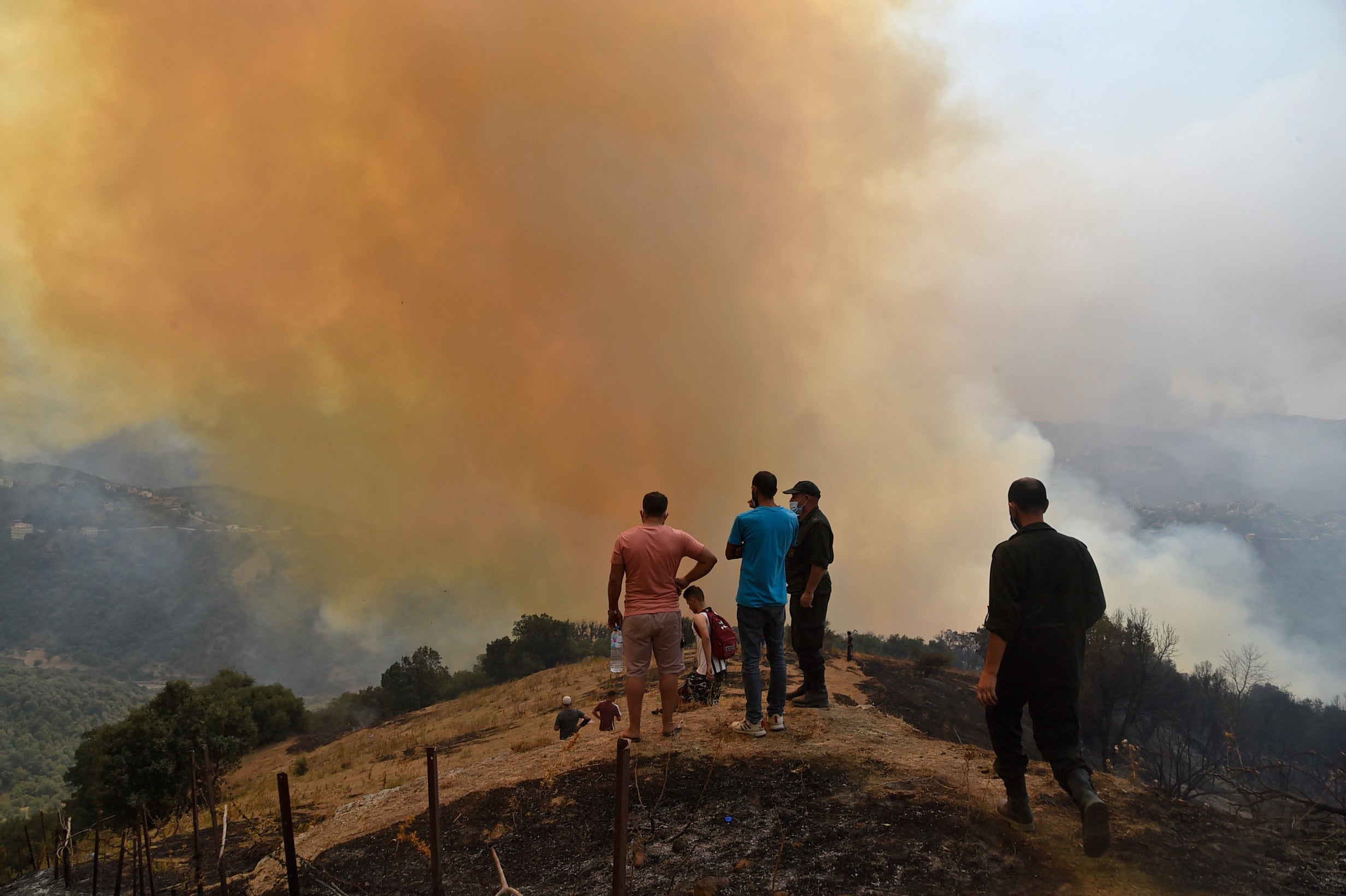Almost 50 people sentenced to death over lynching of Algerian man wrongly accused of starting wildfires
Villagers wrongly accused Djamel Ben Ismail of starting blaze

Your support helps us to tell the story
From reproductive rights to climate change to Big Tech, The Independent is on the ground when the story is developing. Whether it's investigating the financials of Elon Musk's pro-Trump PAC or producing our latest documentary, 'The A Word', which shines a light on the American women fighting for reproductive rights, we know how important it is to parse out the facts from the messaging.
At such a critical moment in US history, we need reporters on the ground. Your donation allows us to keep sending journalists to speak to both sides of the story.
The Independent is trusted by Americans across the entire political spectrum. And unlike many other quality news outlets, we choose not to lock Americans out of our reporting and analysis with paywalls. We believe quality journalism should be available to everyone, paid for by those who can afford it.
Your support makes all the difference.Forty-nine people have been sentenced to death for the lynching of a man who they wrongly believed had started wildfires in their Algerian village.
Djamel Ben Ismail travelled to the northern Kabylie region, about 200 miles from his home in August 2021, after blazes broke out there.
The 38-year-old tweeted that he was going to “give a hand to our friends” fighting the flames.
But local people from Larbaa Nath Irathen village dragged him into the main square and attacked him. They accused him of starting the fires, apparently because he wasn’t from the area.
His murder shocked the country, especially after graphic images were shared on social media.
A high-security trial involved more than 100 suspects, with most found guilty of playing a part in Mr Ben Ismail’s killing.
Those given the death penalty are likely to face life in prison instead because Algeria has had a moratorium on executions for decades.
Thirty-eight others were sentenced to between two and 12 years in prison, said lawyer Hakim Saheb, from a collective of volunteer defence lawyers at the trial.
After arriving in Larbaa Nath Irathen and being wrongly accused, police said Mr Ben Ismail was dragged out of a police station, where he was being protected, and attacked.
Among those on trial were three women and a man who stabbed his inanimate body before he was burnt.
Police said photographs posted online helped identify the suspects.
Mr Ben Ismail’s family asked why those filming did not save him instead.
The trial also had political undertones.
Five people were convicted in absentia for their involvement in the killing and for belonging to or supporting a banned Kabylie separatist movement called MAK, Mr Saheb said.
The movement’s leader, Ferhat M’henni, based in France, was among them.
Algerian authorities accused MAK of ordering the fires.
Defence lawyers said confessions were coerced under torture and called the trial a political masquerade aimed at stigmatising Kabylie.
At the time of the fires, the region was the last bastion of the Hirak pro-democracy protest movement, which helped bring down long-serving president Abdelaziz Bouteflika.
Hundreds of Algerian citizens have been jailed for trying to keep the Hirak movement alive, with marches banned by Algeria’s army-backed government.
The wildfires, in the mountainous Berber region, killed 90 people, including soldiers trying to tame the flames.



Join our commenting forum
Join thought-provoking conversations, follow other Independent readers and see their replies
Comments